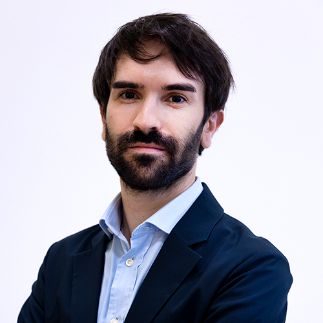Volpe Alessandro Ricercatore tempo determinato tipo aPhilosophyPHIL-03/A - Filosofia morale
Biography
Biography
Alessandro Volpe is a Researcher in Moral Philosophy at the Faculty of Philosophy, Vita-Salute San Raffaele University in Milan. He is member of the European Centre for Social Ethics.
His research focuses on contemporary critical theory, the idea of solidarity and the relationship between Europe and philosophy.
Previously, he was a research fellow and received his Ph.D. in Philosophy at Vita-Salute San Raffaele University.
He was also a research fellow at the Fondazione Fratelli Confalonieri (Milan) and Visiting doctoral fellow (2019-2020) in the Cluster of Excellence “Normative Orders” at the J.W. Goethe University in Frankfurt am Main, under the supervision of Rainer Forst.
He currently teaches “The Western Tradition: Moral and Political Values” at the University of Milan-UniSR and “Ethics for Engineers” at Carlo Cattaneo University in Castellanza (VA).
He is a member of the Italian Society of Critical Theory; Italian Society of Moral Philosophy; member of the editorial board of the scientific journal “The Future of Science and Ethics”.
Since 2022 he has been also a scientific consultant of Fondazione Umberto Veronesi.
Since 2017 he has been coordinator of the permanent seminar “History, Utopia, Emancipation” at UniSR and since 2021 co-curator of the series of seminars “Europa anni ‘20”, in collaboration with Casa della Cultura in Milan, a project winner in 2022 of the “University4EU” Prize.
Areas of specialization
Jürgen Habermas; Solidarity; Contemporary critical theory; Philosophy and European identity.
Areas of expertise
Moral philosophy; Social ethics; Normative ethics; European studies.
Il titolare del presente curriculum vitae, pubblicato online sul portale www.unisr.it, è garante in via esclusiva della correttezza e della veridicità dei dati e delle informazioni in esso riportate e del loro eventuale e puntuale aggiornamento. Egli è dunque il diretto ed unico responsabile dei contenuti indicati nei propri curricula.

